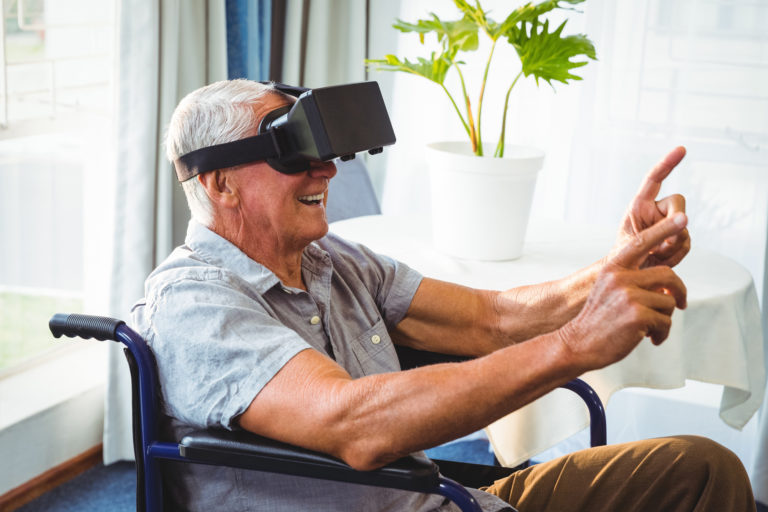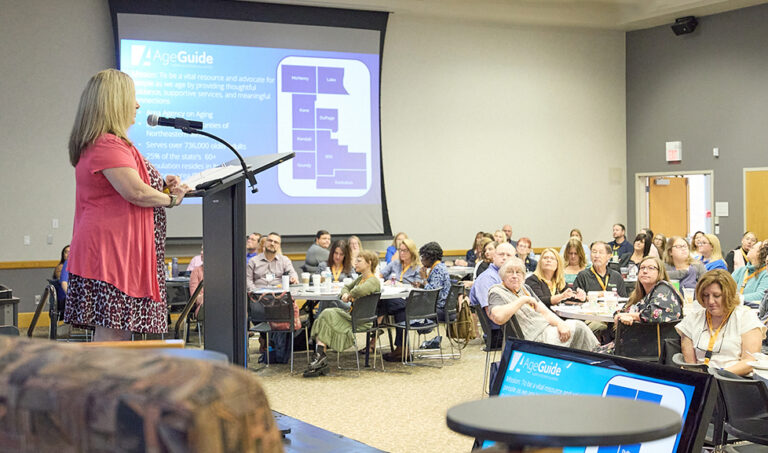
Chelsea is a graduate student of journalism at Northwestern University with a concentration in Health, Science and Environment Journalism. She is passionate about topics related to technology, environment and health equity. Her work appears in Cicero Independiente, South Side Weekly, and Planet Forward.
Catherine Samatas recently traveled from Deerfield to Israel with residents of the assisted living home where she works. But instead of packing suitcases and boarding a plane, Samatas and the residents settled into their seats and donned virtual reality (VR) headsets. As director of engagement and innovative programming for CJE Senior Life, an organization that prioritizes positive aging, Samatas witnessed virtual reality’s power.
One participant with dementia become entranced during the experience. The man recognized his former homeland through the VR headset, and when he removed it, he had tears in his eyes, wanting to go back.
“I realized at that moment the powerful emotions that we could elicit in someone through this kind of virtual experience,” Samatas says. It occurred to her that caregivers could also benefit from immersion if used as a teaching tool.
CJE SeniorLife partnered with the non-profit Elderwerks Educational Services to create a caregiver training program called Dementia Reality. The program displays real-life scenarios through virtual reality. It focuses on two crucial components in dementia caregiving: empathy and communication.
Thirty-eight people — social workers, administrative staff, caregivers, and more — have undergone the training, currently in pilot phase. Fees vary for individuals and groups, and local trainings take place at Elderwerks in Palatine.
“It really is powerful. You have no idea until you put it on,” Samatas says.
Dementia Reality is open to all professional caregivers and those working with adults living with dementia. To arrange a training session, contact help@dementiareality.org or call (773) 508.1690.












